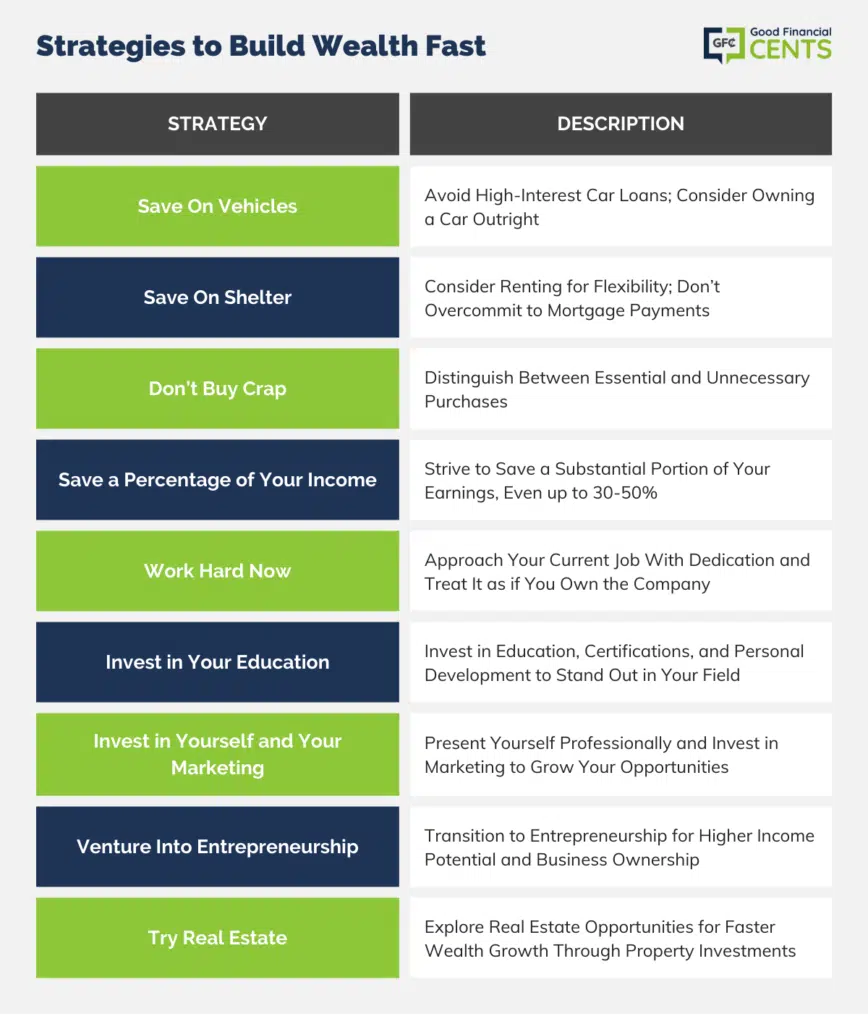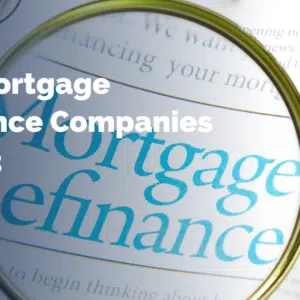Those who know me know how much I love the Roth IRA.
I love it so much that I tried to convince my wife to name our third son “Roth.” Ha, ha, I might be kidding.
Anytime I can encourage a young investor to start their own Roth IRA, it gets me fired up.
While they may see only $50 to $100 per month going into the Roth IRA, I know that upon retirement, they are going to be more financially secure than 99.9% of the population now.
It gives me goosebumps just thinking about it. The power of compound interest is absolutely astounding.
When a good friend of mine who owns a photography business wanted to start investing in his own Roth IRA through me, I was excited for him.
I immediately thought of how we would spend our retirement years, reveling in the fact that we started investing when we were younger. The future result? The accumulation of hundreds of thousands, if not millions, of dollars.
That’s why I was in utter shock when he came to me one day and informed me he was going to be closing out his Roth IRA. His rationale was that the $1,000 or so that he had accumulated over the years was going to be used to purchase equipment for his photography studio.
He needed to update his camera, camera lenses, and some scenic backdrops for some of the portrait work that he was working on in his studio.
He told me that he felt that he would get a much larger ROI (return on investment) on investing in his business than he thought he could get in his Roth IRA.
At first, I was speechless. How dare he ruin his own financial future by cashing out his Roth IRA! Did he not see how much he was costing himself?
I was a W2 employee at the time, and although I understood the concept of unlimited revenue, I couldn’t relate to what he was trying to do. In my mind, I immediately dismissed it.
I thought he was making a huge mistake.
It wasn’t until several years later when I became a business owner that I had the “aha moment” – I got it. I understood what it meant to invest in your business – to see the exponential return.
I never told my friend I thought he was making a mistake. I politely cashed out his Roth IRA and wished him luck investing in his business.
Looking back, I know that he was right and I was wrong.
I was a young financial advisor back then, and I was trained to show people how to invest in a Roth IRA and how to invest in mutual funds for the long term. Sadly, many financial advisors adhere to those same beliefs – that investing should only be done through the stock market.
Let’s be clear. The point of this article is not to tell you that you must absolutely invest in a 401(k), Roth IRA, mutual fund, ETF, stock, or other investment. If you want to build wealth fast – like really fast – then investing in a vehicle such as a Roth IRA will not get you there.
If you’re younger and your income limits allow, open up a Roth IRA. Invest in mutual funds and ETFs. Make sure you have enough cash in your emergency fund. Starting your financial life with those good habits will bleed over into your success in building wealth.
Okay, so how do you build wealth fast? Let’s take a look.
Table of Contents
Drop Your Living Expenses Like Crazy
I know this isn’t very exciting, but this is the definition of wealth. As Todd Tresidder of FinancialMentor.com says, “Great wealth builders focus on both saving money and earning more.”
What Todd is pointing to here is the gap between your expenses and your income. Expenses should always be lower than your income. The larger that gap, the more wealth you can accumulate.
Let’s face it, you can’t invest unless you have money to invest. If you’re currently living beyond your means and have no additional money to put to work for you, you’ll never build wealth.
1. Save on Vehicles
I was very fortunate that I learned this lesson when I was still in college. This led to me driving a 1998 Chevy Lumina that was completely paid for because I inherited it from my deceased grandmother.
Not having a car payment allowed me to invest in myself, my Roth IRA, and my 401(k).
According to Jason Fogelson for Forbes, “The biggest mistake a car buyer can make, especially in the age of the Internet, is to buy a car without doing research first.
Some buyers are so eager to get through the car-buying process that they don’t take the time to find out everything they can about vehicle reliability, pricing, and financing.”
I agree. But let’s focus on the financing part for a minute. Car loans come with ridiculous interest rates that nobody should have to pay to obtain transportation. Car loans can easily be one of the highest-cost debts for many American households.
Too many people view the car payment as “normal.” Sure, it’s normal, but “normal” won’t help you produce wealth, my friend. Instead, consider doing what I did and driving a car that you own outright. It’ll be easier on your pocketbook over the long term – I promise.
2. Save on Shelter
In addition to that, my wife and I rented a house for the first year that we were together. Not having the mortgage payment allowed us to build up our emergency fund and also save for our retirement.
But what if renting seems to be more expensive than having a mortgage payment? According to Beth Braverman for Forbes, “Rentals offer far more flexibility. Buying a home typically means committing to a 30-year mortgage.
Most people don’t stay in a home for anywhere near that amount of time, but it’s much harder to pick up and move from a home you own than it is to leave a rental.”
And what happens when you can’t sell your home when you need to move due to a job change or another reason? You pay a whole lot of money not only for the house you can’t sell but also for the house you move into.
If you need flexibility, consider renting as we did, even if the rent payment is higher than a comparable home with a mortgage payment.
3. Don’t Buy Crap
Lastly, we didn’t buy crap we didn’t need.
Ask yourself what you really need and don’t need. Do you really need that million-inch flat-screen TV? No, you don’t!
4. Save a Percentage of Your Income
Savers like my wife and I are definitely in the minority. Very few people save a substantial amount for the future, but if you think we’re in the minority, then check out Pete from MrMoneyMustache.com, who advocates that you should be saving between 30 to 50% of your income.
While that’s definitely on the extreme side of things, Pete is just another example of how it can be done.
Granted, the more you make, the larger the percentage you can save. The point here is to make some steep sacrifices so that you can put more of your wealth toward investments that are right for you.
Earn Much, Much More
As the old saying goes, “You have to have money to make money.” I know what you’re thinking, though:
“Well, Jeff, I don’t have any money, so how can I make money if I ain’t got no money?”
First, let’s address something. When you say that you don’t have any money and believe that, you’re already setting yourself up for failure. You have to change your mindset and believe that you can find a way to make more money.
5. Work Hard Now
When I think back to how I was able to advance my career, I remember when I was an unpaid intern at the brokerage firm that ended up hiring me. As an intern, I was working 12 to 15 hours a week, showing up when I was told to, dressed, and ready to impress.
The majority of my duties were shredding important documents, filing, and other basic administrative duties.
Even though the work was boring, I did everything that was asked of me and more. My work ethic and drive spoke for itself. After that summer internship, I was offered a full-time position.
If you have a job, even though you might not like it, give it everything that you’ve got. Treat the company that you work for as if you own it.
Imagine then that you’re the CEO.
How would you approach your daily duties differently if more were on the line?
It’s really difficult to find great opportunities. It’s possible, but it isn’t easy. For now, I recommend that you focus on working hard. People around you will start to take notice.
Just like I was offered a full-time position because I worked hard as an intern, you will find doors of opportunity opening for you when you give your work all you have.
6. Invest in Your Education
Another way that you might be able to make more is to invest in your education. This could be getting your degree, getting an MBA, or getting a specialized designation.
For me, getting my CERTIFIED FINANCIAL PLANNER™ certification has yielded thousands of dollars in revenues over the years.
When I first passed the exam for my certification, many people asked me, “Congratulations! Does this mean that you get a raise?” There was no immediate financial benefit for me.
It was a year out of my life where I studied my butt off, but I knew having that designation would give me the education and also the credentials to set myself apart from the competition.
While I didn’t see any immediate financial benefit, I can attribute several new clients as well as several media opportunities to the fact that I’m Jeff Rose, CFP®. You can get your certification too!
7. Invest in Yourself and Your Marketing
Over and above that, I have invested in myself. When I was first starting off, I didn’t have a lot of money, but I knew I needed to look the part, so I bought fresh shirts, ties, suits – anything I could to make myself look more like a professional.
I also invested in personalized brochures, seminars, and other marketing materials to put myself out there.
Another way I invest in myself is by paying $7,900 per year for Strategic Coach, a coaching program with workshops, program advisors, and like-minded entrepreneurs.
Dan Sullivan of Strategic Coach has created a program I’ve found hugely beneficial to my business – my business has grown as a result of his work. Many of his quotes, like this one, pack a punch:
For a company to grow 10x, it doesn’t need you managing – it needs self-managing.
I always made sure that I didn’t overextend myself to the point where I was spending more than I could afford. A lot of the money that I earned wasn’t going toward frivolous things such as big-screen TVs or going out to eat at high-end restaurants.
Instead, the money went toward investing in myself and my business.
8. Venture Into Entrepreneurship
I highly recommend you start building wealth by venturing into entrepreneurship.
When I became an entrepreneur, my wealth-building journey really took off. Several years prior, I had read the book Rich Dad Poor Dad. In that book, author Robert Kiyosaki introduces the concept of the cash flow quadrant.
He looks at four different entities: the employee, the self-employed, the business owner, and the investor.
When I read that book, I fell under the employee quadrant, but I knew that if I ever wanted to make serious money, I had to get into the right type of quadrant – either the business owner quadrant or the investor quadrant (the investor quadrant is actually the best).
When I first started as a financial advisor, I was still an employee. I had the ability to make my own hours and grow my business as much as I could, but I also had a lot of restrictions.
My first step was crossing over to being self-employed. Just by making that shift, I saw a 30% increase in income in my first year. Since then, I’ve become a business owner, and now I also consider myself an investor.
As a business owner, I own my wealth management firm. I own my blog, GoodFinancialCents.com, and I also own a few other online properties that all yield my income.
Yes, blogging can be very lucrative – I’ve made over $1,097,757 from it. In fact, I could almost consider my blog as an investment; while blogs do require some upkeep, they certainly do not require nearly the upkeep needed for my financial planning practice.
I’m certainly not the only person who has made a lot of money online. Steve Chou’s wife replaced her $100,000 income with an online store so she could be a stay-at-home mom. It’s amazing what you can do if you put your mind to it.
Whether you are thinking about starting an online business or growing your brick-and-mortar business, it all comes back to working hard now. But you know what? You have to work hard at the right things, or you’ll just be spinning your wheels.
My current businesses are the result of several business ventures that didn’t work out. I tried multi-level marketing on a few occasions. I tried real estate.
I tried a solo 401(k) business. None of these worked out for me. In some cases, I lost a lot of money. In others, it was just a waste of time. But in all those experiences, I learned one thing, it is important that you adopt the mantra: “Win or learn, never lose.”
9. Try Real Estate
Speaking of real estate, although it didn’t work out for me and it’s not right for everyone, it has certainly worked out for others. I asked Brandon Turner from BiggerPockets.com just how quickly real estate investing can help individuals build wealth. Here’s what he had to say:
Real estate investing may not make you wealthy overnight, but it can add zeros to your net worth in a shorter timeframe than many other traditional investments.
For example, purchasing a fixer-upper house, rehabbing the property, and selling it for more can net you a significant windfall if you do it correctly.
Just be sure to buy low, rehab smart, and sell fast. House flipping, as this process is called, is largely a math game, and significant profits can be made by those willing to take on the challenge.
Another strategy that can help you add wealth quickly through real estate is by purchasing multifamily properties that produce significant monthly cash flow.
This cash flow can be saved and reinvested into more deals, creating a domino effect that will allow you to exponentially grow your real estate portfolio.
For more information, read The Ultimate Beginner’s Guide to Real Estate Investing from BiggerPockets.com.

Concluding Thoughts
To build wealth really fast, you’re not going to get there by investing $50 to $100 per month into a Roth IRA. While yes, it’s great as a long-term strategy, it’s not going to make a difference in the short term.
A lot of financial advisers I talked to don’t want to encourage you to take that risk now. Heck, I was one of those financial advisors several years ago.
While not letting you know about all the wealth-building options isn’t financial malpractice, it’s certainly better if your financial advisor gives you a variety of options based on your financial goals, even if it doesn’t help his pocketbook.
It’s always a good idea to talk to several professional investors to see what has worked for them. The best question you can ask any financial professional is how they are investing their money – it will speak volumes.
Let’s step back for a moment. You might be thinking, “How in the world can I learn and do all this stuff? Is it even possible?”
Don’t think that you have to do everything. Instead, focus on a few things and do them well. It all starts by investing in yourself. Listen to podcasts, read books, and take millionaires out for lunch (yes, you buy).
You can start by subscribing to an excellent podcast by Lewis Howes: The School of Greatness Podcast. There, you will become equipped to think differently about yourself and your wealth. It’s fantastic.
As you make it a habit to find ways to better yourself, you’ll also find new potential ways to build wealth faster than ever. Everyone does it differently, and nobody will do it exactly like you.
You’re unique, and you’ll find a way. Just give yourself a chance! I’m so glad I gave myself a chance to succeed. You will be too.
This post originally appeared on Forbes.com.








Great ideas! I agree that many of these are things that most advisors don’t recommend to their clients, but they probably should.